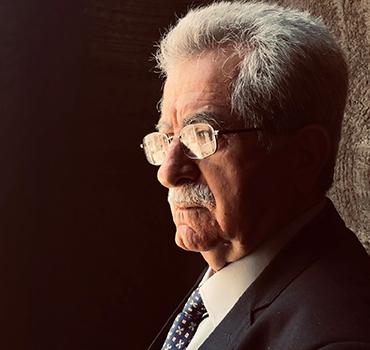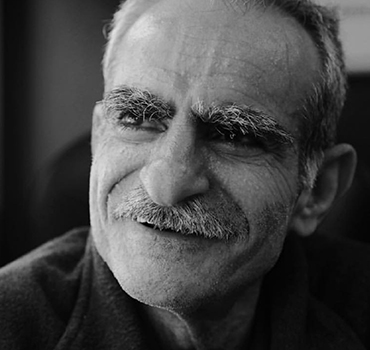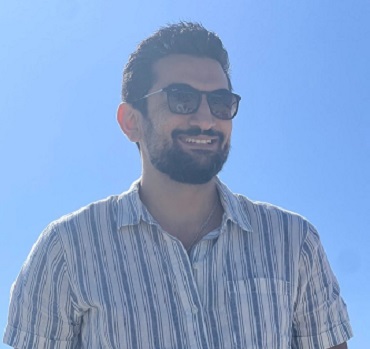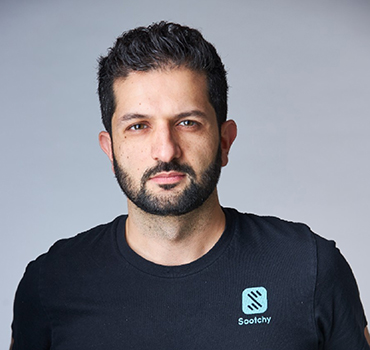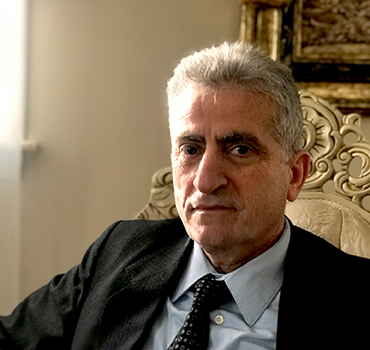
Abdul Massih Issac Saadi
- Born In: Durbasyah, Syria
- Degrees: Civil Engineer, BA in Business, Master's in Levantine Church History, Ph.D. in Syriac Studies.
- Profession: Syriac language Scholar; currently a Professor at Baylor University, Texas, USA.
- Vocation: Surayt - TurAbdin Syriac Bible Translator.
Biography
- Abdul-Massih Issac Saadi, was born in Durbasyah, Syria, where he completed his primary education, and joined Saint Ephrem theological seminary in Bikfaya, Lebanon. He graduated with a diploma in priestly sciences in 1976, then pursued his secular studies at the University of Aleppo and graduated with a bachelor's degree in civil engineering in 1993. In 1984, he was appointed as a teacher and assistant director of the Saint Ephrem Theological College in Damascus, then he became the headmaster of the faculty until 1990.
- While teaching in Damascus, he also studied at Damascus University and graduated with a BA in Business Administration in 1989.
- In 1990, His Holiness, Patriarch Mar Ignatius Zakka, Iwas sent him to the University of Chicago (Lutheran School of Theology) to complete his postgraduate studies. He obtained a master's degree in the history of the Levantine Church in 1992, a master's degree in Oriental theology in 1994, and a doctorate in Syriac studies in 1999.
- Since his graduation, he was appointed as a visiting professor and lecturer in Syriac sciences and the history of the Levantine Church at the same university. He was also appointed in charge of indexing the Syriac manuscripts succeeded by the late Professor Arthur Phobes, which, according to Phobos’s estimation, amounts to “a quarter of a million documents.”
- In 2002, he was appointed as a lecturer at the University of Notre Dame in the Department of Middle Eastern Studies (Syriac and Arabic).
- In the year 2010-2011, he returned to the land of fathers and grandfathers and joined the University of Mardin (Artoglu) to manage and teach in the Syriac Graduate Studies branch. The University of Mardin program project was short-lived. He returned again to the United States of America.
- Since then he joined Baylor University, in the state of Texas, and was appointed as a professor to teach Syriac sciences and both Arabic and Syriac.
- He has many books and many articles, the most important of which are:
- ܟܬܒܐ ܩܕܝܫܐ ܕܝܬܝܩܐ ܚܕܬܐ: ܗ̄ܽܘ ܟܬ̥ܳܒ̥ܳܐ ܩܰܕܝܫܳܐ ܕܽܗ̄ܘ ܩܝܳܡܳܐ ܚܰܕ̱ܬ̥ܳܐ (The Bible Society: Istanbul, 201) A translation of the New Testament by adopting the Syriac translation of the Vishtu as a source. And with him the preparation of the entire Syriac version.
- Moshe Bar-Kivu and Ninth-Century Dialectical Literature Toward Muslims: An Interpretation of the Gospel of Luke (2 volumes, NJ: Courcius Publishing House, 2020).
- علّة الميلاد لموشي بار كيفو: إسلوب للتفسير، والمسكونية، والادب الدفاعي (نيوجرسي: دار كوركيوس للنشر، 2017)
- “The oldest texts of conversations with Muslims: The Message of Saint John Abu al-Sedrat,” Simta Journal of Syriac Studies and Literature, 3: 9 (2007), 67-93.
- "ܓܶܫܪܐ ܒܰܝܢ ܗ̄ܽܘ ܠܶܫܢܳܐ ܚܰܕ̱ܬ̥ܳܐ ܠܽܗ̄ܘ ܥܰܬܝܩܳܐ: ܟܬ̥ܰܒ̥ܬܳܐ ܬܪܺܝܨܬܳܐ،" ܐܫ̈ܠܝ ܢܨܒܐ 2016-2018.
- He published six articles on the scientific and practical method of writing literature in the Syriac language - Tur Abdin dialect
- And published in English:
- “Interdependence of Classical Syriac and Suryoyo of Tur Abdin (STA): The Future of the Syriac Language,” in Dorothea Weltecke, ed., Neue Aramäische Studien: Geschichte und Gegenwart (Frankfurt: Scola Nisibina Bd1, 2018), 169-191. It is a chapter in a monograph. This article discusses the interdependence of both languages throughout their evolution. It proposes the principles of orthography for the writing of the spoken language based the classical.
- “Orthography for Modern Syriac that Enlivens Classical Syriac,” in Dorothea Weltecke, ed., Neue Aramäische Studien: Geschichte und Gegenwart (Frankfurt: Scola Nisibina Bd1, 2018), 193-201. [in Syriac Language]. It is a chapter in a monograph. This article in Syriac discusses the new orthography for modern spoken Syriac, and highlights its significance for both Modern and Classical Syriac.
- “Ninth Century Syriac Exegete and Apologist: Moshe Bar Kepha’s Commentary on Luke,” Hugoye Journal for Syriac Studies. Hugoye: Journal of Syriac Studies 20.1 (2017): 231-256.
- “Nascent Islam in the Seventh Century Syriac Sources,” The Quran in Its Historical Context (ed. Gabriel S Reynolds; New York and London: Routledge, 2007): 217-222. It discusses a new perspective on the emergence of Islam exclusively from Syriac sources in the 7th and 8th century, before there were any Arabic records on this subject.
- “Moshe Bar Kepha and the Christian Communities,” The Harp: A Review of Syriac and Oriental Ecumenical Studies 25 (2002): 161-174. It is a peer-reviewed scholarly Journal, with an acceptance rate of 30% The article discusses the ecumenical aspect of the 9th-century writings of Moshe Bar Kepha, based on his Commentary on the Gospel of Luke.
- “The Originality of Syriac Historiography,” Pages 85-92 in Melammu Symposia I: The Heirs of Assyria. Proceedings of the Opening Symposium of the Assyrian and Babylonian Intellectual Heritage Project Held in Tvärmine, Finland, October 8-11, 1998. Edited by Aro, Sanna, and Whiting, Robert M.. Helsinki: The Neo-Assyrian Text Corpus Project, 2000. The article analyzes a historical event from the 6th century in the writings of four prominent Syriac historians over a period of 600 years. The study proves that the Syriac historian was creative in recording the event rather than merely quoting each other.
- He co-founded a series of publications called "Carmo", of which four books were published.

